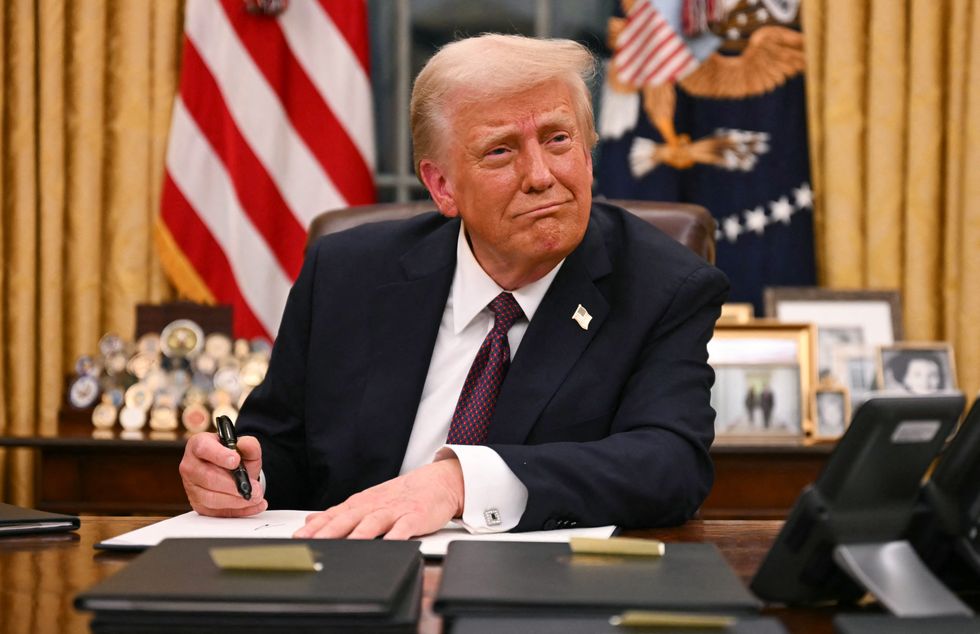Jake Brigstock
Jan 24, 2025
Trump's Birthright Citizenship Order Halted By Judge: 'Blatantly Unconstitutional'
Benzinga / VideoElephant
Donald Trump has been busy during his first week his office since he was inaugurated on Monday (January 20).
One of the very first things he did was sign more than 100 executive orders which included pardoning around 1,500 of his supporters who were charged following the riot at the US Capitol on January 6 2021.
Trump has since described the attacks on police officers during the riot as "minor incidents".
He cut short the sentences of some members of far-right organisations who were criminally convicted of seditious conspiracy, which is the crime of plotting to overthrow the government or use force to prevent it from carrying out its duties.
One of those he pardoned was the founder of the far-right Oath Keepers group Stewart Rhodes who was sentenced to 28 years for seditious conspiracy.
Rhodes said there were "no regrets" when speaking to reporters upon his release which led Michael Fanone, a former police officer who was seriously injured by attackers while defending the US Capitol, to tell the far-right group leader to "go f*** yourself" live on a news broadcast.
But at least two people he pardoned have said they don't want it and deserved to be punished for their actions, with one going as far as saying "Trump can shove his pardon up his a**", reports Huffington Post.

Jason Riddle, who was sentenced to 90 days in jail for two misdemeanour offences, told ABC News: "I am guilty of the crimes I have committed and accept the consequences. It is thanks to those consequences I now have a happy and fruitful existence.
"I don't need to obsess over a narcissistic bully to feel better about myself. Trump can shove his pardon up his a**."
Pamela Hemphill, a 71-year-old woman from Idaho who was called 'MAGA Granny', also said she would refuse the pardon.
She told KGW8: "I'm not going to take it. I gotta do some research on who to contact to refuse it. The message is, if I took a pardon, that what I did that day was okay. They were criminals. They broke the law. I broke the law. Pay the price."
A presidential pardon can legally be rejected by the person who it's issued to, according to a US Supreme Court ruling in 1833 that led to case law (US v Wilson).
How to join the indy100's free WhatsApp channel
Sign up to our free indy100 weekly newsletter
Have your say in our news democracy. Click the upvote icon at the top of the page to help raise this article through the indy100 rankings.
Top 100
The Conversation (0)














